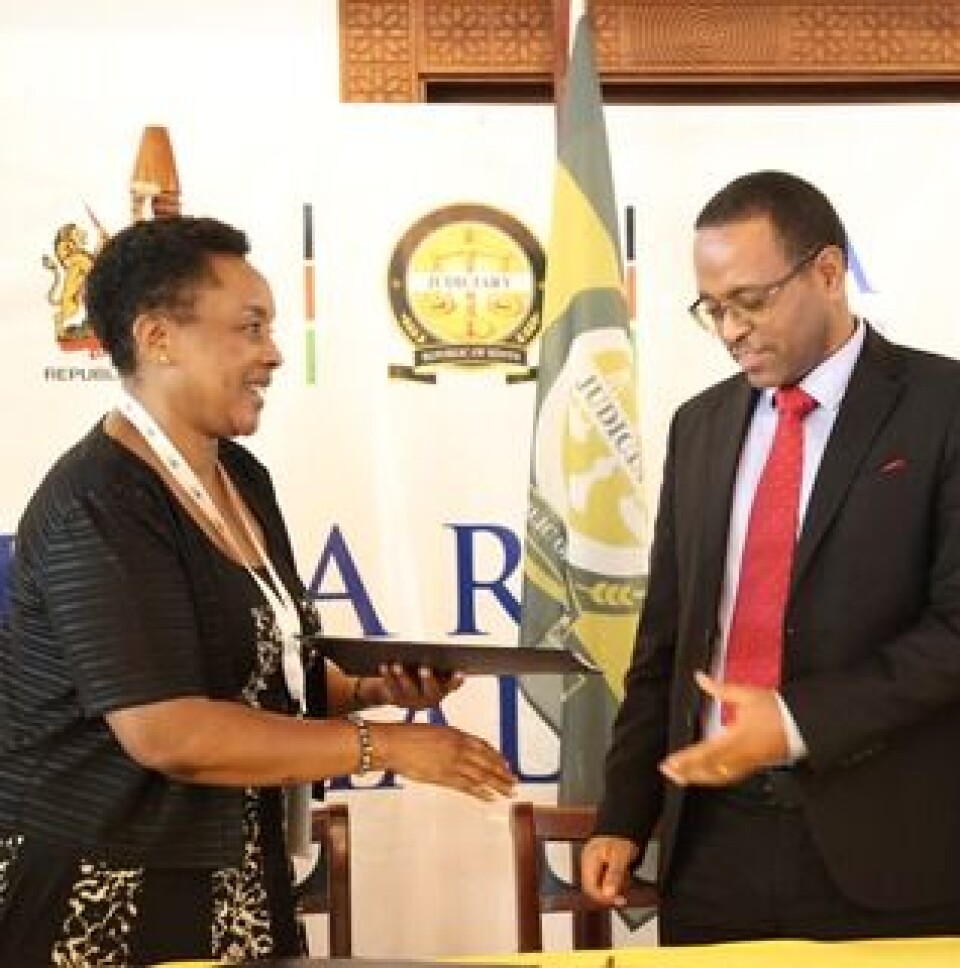Copyright : Re-publication of this article is authorised only in the following circumstances; the writer and Africa Legal are both recognised as the author and the website address www.africa-legal.com and original article link are back linked. Re-publication without both must be preauthorised by contacting editor@africa-legal.com
Transnational crime hits a roadblock in Africa

Judicial institutions from 16 African countries have signed an agreement to enhance the fight against transnational organised crimes and illicit financial flows in the continent, writes Paul Ogemba.
Under the Regional Judicial Dialogue on Strengthening Adjudication of Transnational Organised Crimes (TOCs) and Illicit Financial Flows (IFFs) in Africa, representatives that included chief justices, judges and senior judicial officers committed to a 17-point agenda in combating the crimes.
Chief Justices Martha Koome of Kenya and Tewodros Kebede of Ethiopia led the three-day conference in Mombasa, Kenya, where they resolved to use legal means to end TOCs and IFFs which have occasioned political and economic instability in the region.
“Human trafficking, narcotic trade, illegal arms dealing, cybercrime, wildlife poaching, counterfeiting and growth of illicit financial flows have cast a shadow over the continent. We must advocate for robust enforcement of laws and adoption of new strategies to combat it,” said Koome.
According to the United Nations Office on Drugs and Crime (UNODC), transnational organised crime generates an estimated 2.7% of global gross domestic product, with an annual value of approximately US$1.6 trillion.
Justice Kebede stated that African nations need to develop indigenous jurisprudence on TOCs and IFFs and have continental cooperation between judiciaries to help justice prevail in combating the crimes.
The countries committed to ensuring regional collaboration and cooperation by developing and maintaining a network of judiciaries, coordinated by judicial training institutes in the region, that is focused on strengthening and achieving effective adjudication of TOCs and IFFs.
“We commit to participate in development and harmonisation of global and regional frameworks, policies, and standards on the prevention and combating of TOCs and IFFs; have initiatives that will facilitate cross-jurisdictional and multi-agency collaboration and interaction in the region with the objective of forging links between different agencies involved in the prevention and combating of TOCs and IFFs,” read the declaration.
In addition, the countries resolved to enhance the capacity of judiciaries to respond effectively to TOCs and IFFs through sharing information, developing a resource centre, having a digest of cases and collaborating with other justice sector divisions like investigators, prosecution, asset recovery, financial intelligence, and witness protection agencies.
An agreement to harness resources to support the development of the capacity of judiciaries to adjudicate on TOC and IFFwas also signed.
“Under the agreement, the regional judiciaries commit to carry out assessment of the needs, including infrastructure, budgetary allocation, human capacity and technology necessary to aid the effective adjudication of TOCs and IFFs,” read the resolution.
The countries also declared they would enhance effective interpretation and application of legal and regulatory frameworks to combat TOCs and IFFs, including the use of alternative justice systems in the process of adjudication where such processes are applicable.
Participants committed to progressively eliminate barriers to access to justice for victims of TOCs and IFFs and enhance realisation of justice and restoration to victims through channels availed by the law.
The countries that signed the declaration were Botswana, Burkina Faso, Ethiopia, Ghana, Kenya, Lesotho, Malawi, Mozambique, Namibia, Nigeria, Sierra Leone, Somalia, Tanzania, Uganda, Zambia and Zimbabwe.
To join Africa Legal's mailing list please click here
